September 29, 2020
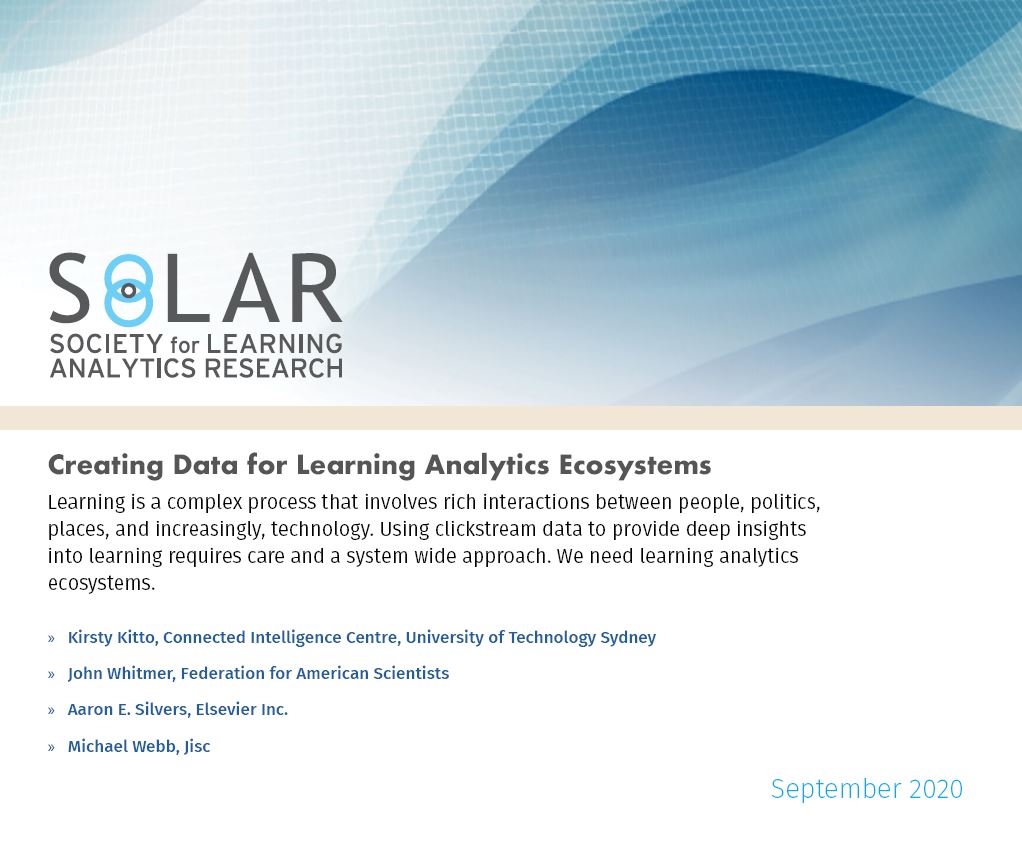 A new SoLAR position paper titled “Creating Data for Learning Analytics Ecosystems” has been published. This position paper discusses the challenges faced by institutions as they seek to wrangle data from a portfolio of technology products and services to deliver rich learning experiences. It identifies a number of systemic failures that are leading many institutions to collect a large quantity of data that yields very few educationally relevant insights; from a lack of data policies to competition between vendors and standards. This position paper provides several high-level recommendations for three different sets of stakeholders to consider as they move towards a more mature implementation of LA: (i) Institutions procuring EdTech products; (ii) EdTech vendors seeking to deliver analytics products, and (iii) The LA community of practitioners. It also provides detailed evidence and examples in a series of appendices that are pitched at more technical members of your organisation as you seek to build a robust and useful learning analytics ecosystem.
A new SoLAR position paper titled “Creating Data for Learning Analytics Ecosystems” has been published. This position paper discusses the challenges faced by institutions as they seek to wrangle data from a portfolio of technology products and services to deliver rich learning experiences. It identifies a number of systemic failures that are leading many institutions to collect a large quantity of data that yields very few educationally relevant insights; from a lack of data policies to competition between vendors and standards. This position paper provides several high-level recommendations for three different sets of stakeholders to consider as they move towards a more mature implementation of LA: (i) Institutions procuring EdTech products; (ii) EdTech vendors seeking to deliver analytics products, and (iii) The LA community of practitioners. It also provides detailed evidence and examples in a series of appendices that are pitched at more technical members of your organisation as you seek to build a robust and useful learning analytics ecosystem.
Read the full position paper at https://www.solaresearch.org/publications/position-papers/
August 27, 2020
UPDATE: Virtual Presentations, and attendance, will be available for LAK21. This includes Workshops, Long and Short Research Papers, Practitioner Papers, Posters and Demos.
The deadline for the CFP has been extended to provide more time for individuals to consider virtual options while preparing their submissions. The Organizing Committee continues to monitor the pandemic situation and ensure that a COVID-19 safe plan will be in place for all attendees.
New CFP Deadlines are as follows:
Updated Submission Deadlines:
Sun, 1 Nov 2020:
Deadline for full and short research papers, practitioner reports, and workshop/tutorial proposal submissions
Tue, 17 Nov 2020:
Deadline for doctoral consortium submissions
Tue, 1 Dec 2020:
Deadline for posters and interactive demo submissions
Tue, 15 Dec 2020:
Deadline for full and short research paper rebuttal (submissions open 8 Nov 2020) submissions
Tue, 2 Feb 2021:
Deadline for camera-ready versions of all accepted submissions
Tue, 9 Feb 2021:
Deadline for workshop paper submissions (submissions open 1 Dec 2020)
Updated Acceptance Notifications:
Tue, 24 Nov 2020:
Notification of acceptance for workshops and tutorials
Tue, 12 Jan 2020:
Notification of acceptance for full and short research papers, practitioner reports, posters/demos, doctoral consortium
Tue, 23 Feb 2021:
Notification of acceptance for workshop papers
Should you have any questions regarding LAK21, please email lakconference@gmail.com.
June 17, 2020
May 19, 2020
The LASI organising team has been exploring options for hosting the event later in the year. Unfortunately, hosting a face to face event in 2020 is not viable in terms of either securing physical space at the university, individuals being able to travel and/or able to secure funding to attend.
The LASI organising team also believe that hosting an online synchronous event (à la LAK20) is difficult to justify given the nature and purpose of LASI, diversity of time zones and the effort required.
Taking all of the above into consideration, the decision from the SoLAR Executive is to concentrate on supporting local areas to host their own events – LASI Locals – virtually or face to face if that becomes possible in the final few months of the year. All registration fees will be fully refunded.
Sincerely,
LASI20 Organizers
March 30, 2020
We have been monitoring the global COVID-19 situation and unfortunately, the face to face meeting in New York in June 2020 will no longer be possible. We are exploring different dates/formats for LASI, such as a virtual LASI, LASI Locals or a face to face meeting later in the year, and will have further information in the coming months on the new format, and possibly timing, of LASI20.
For Registered Attendees: We will be in touch as soon as a decision has been made. Should LASI20 be cancelled and/or transitioned to an online event, you will be contacted regarding any refund or transfer of registration.
Thank you for your patience in these unprecedented times. Should you have any questions or concerns, please email solarsocietymgmt@gmail.com.
Stay safe and healthy and we hope to post an update soon.
Sincerely,
LASI20 Organizers
January 16, 2020
We are pleased to present the following candidates as nominees for election to the SoLAR Executive:
Candidates for SoLAR Executive Member at Large
(13 Candidates, 4 Positions Available)
Simon Buckingham Shum, University of Technology Sydney, AUS
Bodong Chen, University of Minnesota, USA
Guanliang Chen, Monash University, AUS
Nia Dowell, University of California – Irvine, USA
Victoria Dunnam, Consultant, USA
Carrie Demmans Epp, University of Alberta, CAN
Erkan Er, University of Valladolid, ES
Christothea Herodotou, The Open University, UK
Isabel Hilliger, Pontificia Universidad Católica de Chile, CL
Jorge Javier Maldonado Mahauad, Universidad de Cuenca (EC) / Pontificia Universidad Católica de Chile (CL)
Rafael Ferreira Mello, Federal Rural University of Pernambuco, BR
Pablo Munguia, RMIT University, AUS
Hiroaki Ogata, Kyoto University, JPN
Voting Information: All SoLAR individual and students members are eligible to vote for all positions. Links to access the online voting system will be sent to SoLAR members via email starting on January 17, 2020 (Eastern Time). Voting will end on January 31, 2020 at 11:59pm Eastern. All members who join SoLAR by January 29, 2020 will be eligible to vote and will receive a ballot after successfully joining SoLAR. Any questions, please email solarsocietymgmt@gmail.com
December 30, 2019
The issue 6(3) of the Journal of Learning Analytics (JL.A) is now available. This new issue contains a special Invited Dialogue sparked by Neil Selwyn’s follow-up article to his LAK18 keynote “What’s the Problem with Learning Analytics?”. Four senior members of the community holding diverse perspectives (Alfred Essa, Rebecca Ferguson, Paul Prinsloo, and Carolyn Rosé) each respond and discuss current challenges and opportunities for the field. The issue also presents four new research papers and two data and tool reports and an editorial laying the groundwork for a special JLA event at LAK2020.
See the new issue of JLA HERE.
November 19, 2019
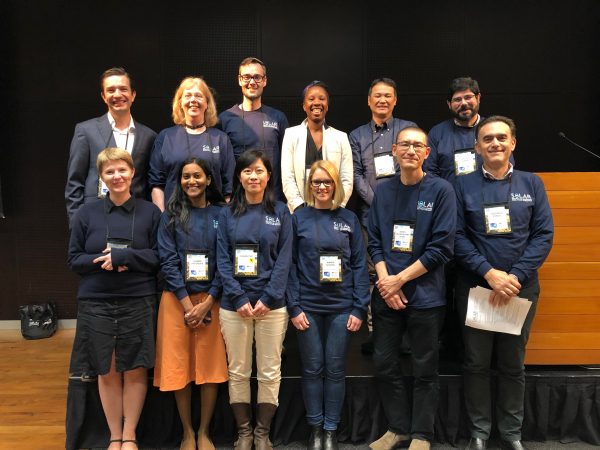
The 2019-2020 SoLAR Executive Committee at LAK19 in Tempe, AZ.
The SoLAR Executive Committee is pleased to announce the call for nominations for the 2020-2021 Executive Committee. Executive Committee members serve two year terms. Nominations are open for four members at-large positions on the 2020 SoLAR Executive Committee.
If you are interested in shaping and guiding how SoLAR continues to serve the growing learning analytics community please send an email to: solarsocietymgmt@gmail.com with the following information by 5:00 pm EST January 10, 2020:
- Name
- Institution
- Short biography (max 200 words)
- Interest in Learning Analytics (Research Area, etc.) & Interest in serving on the SoLAR Executive Committee (max 200 words)
- SoLAR Working Group Interests – Please let the SoLAR community know which areas within our working groups you would be interested in chairing and/or becoming a member. To review the current SoLAR Working Groups, please review: https://www.solaresearch.org/about/governance/solar-working-groups/
- Photo – jpg suitable for web (200×200)
- SoLAR Membership ID number
Only those who have valid 2020 SoLAR memberships are eligible to nominate and vote for Executive Positions. To be considered as a nominee you must be a member of SoLAR by January 10, 2020; to vote in the Executive Committee election you must be a member of SoLAR by January 29, 2020. To renew or join, visit: https://solaresearch.org/membership/
Election Ballots will be sent to all SoLAR Members on January 17, 2020 (EST) and will close on January 31, 2020 (EST).
November 12, 2019
SoLAR Executive Board member Professor Simon Buckingham-Shum was recently interviewed by ABC Radio on the topic of artificial intelligence, ethics and education.
Listen to the full episode here https://www.abc.net.au/radionational/programs/futuretense/artificial-intelligence,-ethics-and-education/11654930
Episode Summary:
AI holds enormous potential for transforming the way we teach, says education technology expert Simon Buckingham Shum, but first we need to define what kind of education system we want.
Also, the head of the UK’s new Centre for Data Ethics and Innovation warns democratic governments that they urgently need an ethics and governance framework for emerging technologies.
And Cognizant’s Bret Greenstein on when it would be unethical not to use AI.
Guests
Roger Taylor – Chair of the UK Government’s Centre for Data Ethics and Innovation
Simon Buckingham Shum – Professor of Learning Informatics, University of Technology Sydney, leader of the Connected Intelligence Centre; co-founder and former Vice-President of the Society for Learning Analytics Research
Bret Greenstein – Senior Vice President and Global head of AI and Analytics, Cognizant
October 7, 2019
SoLAR is happy to announce a new webinar series in conjunction with the Learning Analytics podcast, SoLAR Spotlight. The webinar series will provide a bi-monthly webinar on the months where there is no podcast episode. For the month of August, we were happy to feature, Dr. Professor Simon Buckingham Shum from the University of Technology Sydney titled, “Learning Analytics as Educational Knowledge Infrastructure.” With close to 100 participants registered, we are excited to continue to offer webinars bi-monthly from different parts of the world to allow our participants and community members to listen in live from different time zones spanning the globe.
If you missed our first webinar, here is the replay – “Learning Analytics as Educational Knowledge Infrastructure” on our YouTube Channel. PDF slides available.
Next Up: Webinar #2: “Designing Learning Analytics for Humans with Humans” with Professor Alyssa Wise from New York University – Wednesday, October 16, 12:00pm to 1:00pm Eastern Time.
Abstract:
Learning analytics (LA) is a technology for enabling better decision-making by teachers, students, and other educational stakeholders by providing them with timely and actionable information about learning-in-process on an ongoing basis. To be effective LA tools must thus not only be technically robust but also designed to support use by real people. One powerful strategy for achieving this goal is to involve those who will (hopefully!) use the learning analytics in their design. This can be done by observing existing (pre-analytic) teaching and learning practices, gathering information from intended users, or directly engaging them in participatory design. Such attention to people and context contributes to the development of Human-Centered Learning Analytics (see the recent special section in JLA 6(2)).
In this webinar, I’ll present a diverse set of examples of the ways that NYU’s Learning Analytics Research Network (NYU-LEARN) is including educators and students in the process of building and implementing learning analytics. We’ll look at examples of how to: involve students in the creation and revision of learning analytics solutions for their own use; work with instructors to align analytically available metrics with valued course pedagogy; and partner with an educational team to design and implement interventions based on at-risk students predictions. Webinar attendees will gain a sense of both the conceptual issues and practical concerns involved in designing learning analytics for humans with humans.
All webinar recordings will be made available on our official Youtube channel.


 Simon Buckingham Shum, Australia
Simon Buckingham Shum, Australia Bodong Chen, United States
Bodong Chen, United States Guanliang Chen, Australia
Guanliang Chen, Australia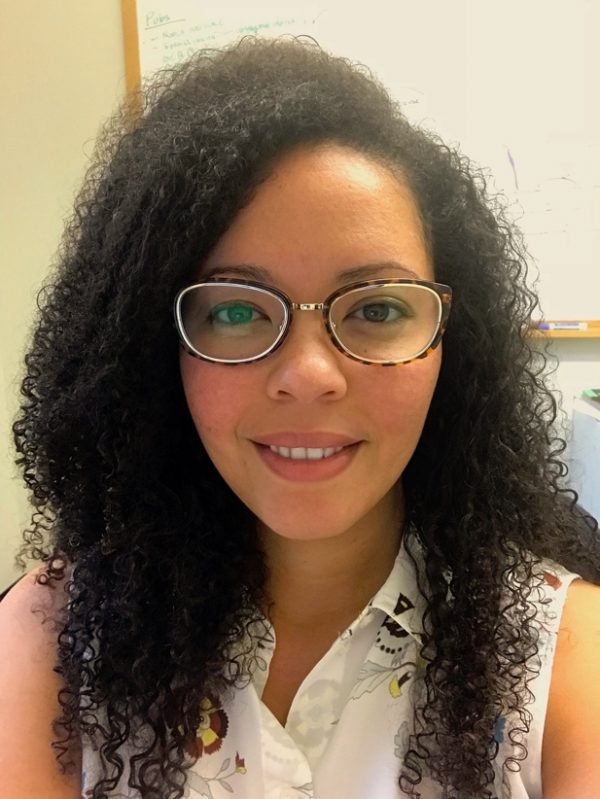 Nia Dowell, United States
Nia Dowell, United States Victoria Dunnam, United States
Victoria Dunnam, United States Carrie Demmans Epp, Canada
Carrie Demmans Epp, Canada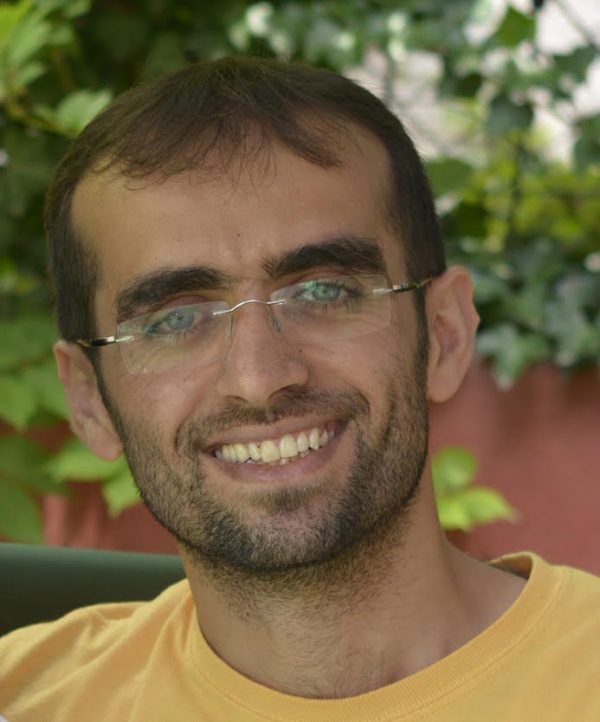 Erkan Er, Spain
Erkan Er, Spain Christothea Herodotou, United Kingdom
Christothea Herodotou, United Kingdom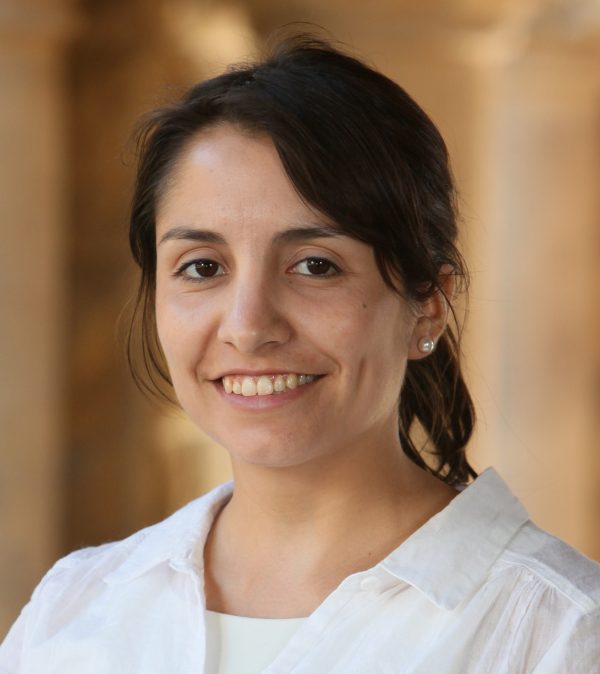 Isabel Hilliger, Chile
Isabel Hilliger, Chile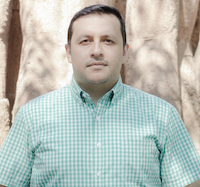 Jorge Javier Maldonado Mahauad, Ecuador / Chile
Jorge Javier Maldonado Mahauad, Ecuador / Chile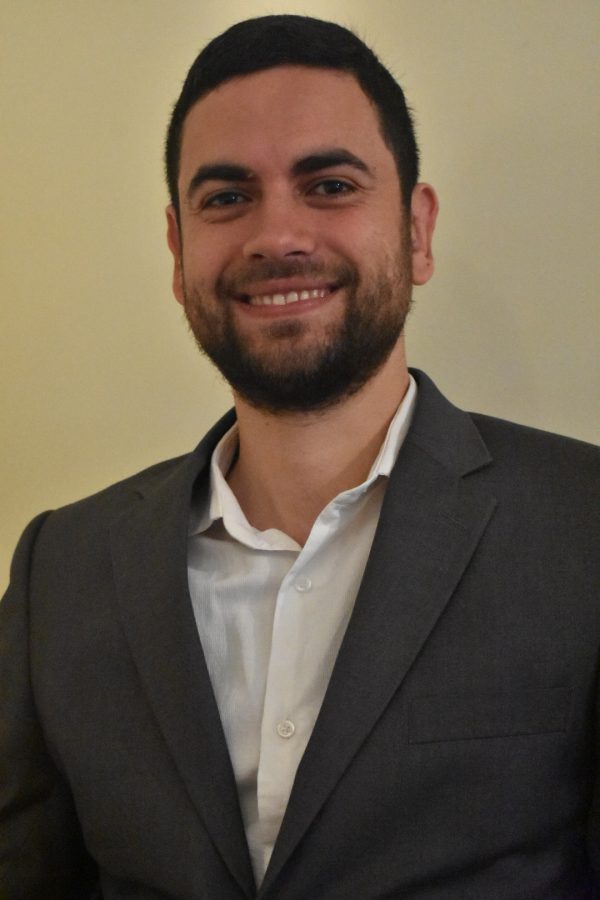 Rafael Ferreira, Brazil
Rafael Ferreira, Brazil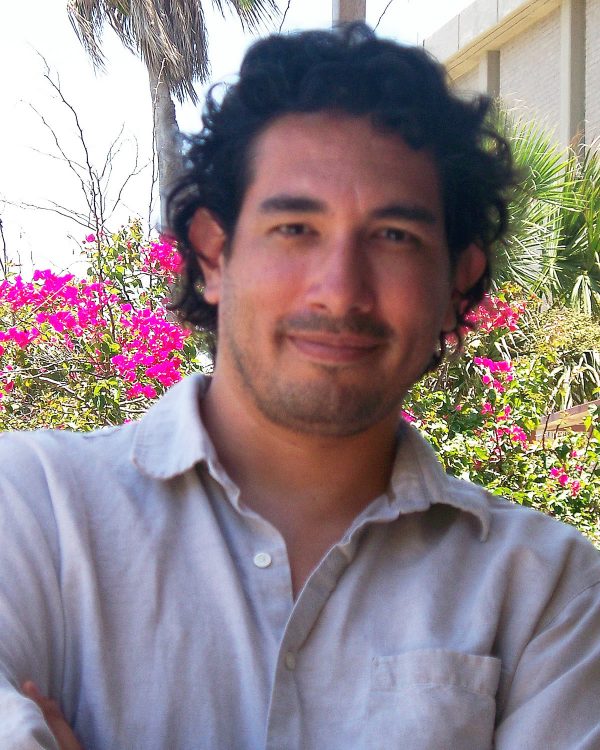 Pablo Munguia, Australia
Pablo Munguia, Australia Hiroaki Ogata, Japan
Hiroaki Ogata, Japan